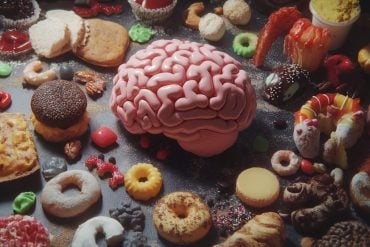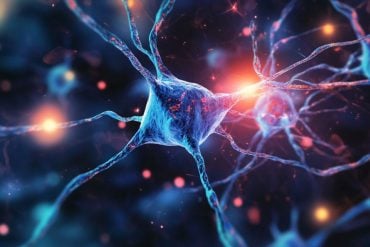If you‘ve had a good night’s sleep, you are mentally more alert and your memory works more reliably. During sleep, a part of our forebrain called the prefrontal cortex remains active. It ensures that memories and learned information are transferred to our long-term memory. Researchers from the Max Planck Institute for Experimental Medicine in Göttingen and Ludwig Maximilian University in Munich have now decoupled the production of growth factor IGF2 from the sleep-wake rhythm and found that it improved long-term memory in mice. This could also have been due to a disturbed sleep-wake rhythm. However, older mice exhibited abnormal behaviour. High levels of IGF2 and a permanently disrupted sleep rhythm evidently damage the brain over the long term. This finding is medically significant because IGF2 is a candidate substance for improving memory impairment in Alzheimer patients.
Much of what we learn during the day is stored temporarily in the hippocampus. Later, during the transition from the waking to the sleep phase, the memories are consolidated. During sleep, memory traces are transferred to other brain regions for permanent storage. Sleep therefore plays a key role in how memories are moved from short-term to long-term memory.

Scientists have identified several mechanisms that control memory formation and regulate sleep-wake cycles, but they still do not know how the two processes interact at the molecular level. “We wanted to find out how sleep-wake regulation affects memory consolidation,” says Ali Shahmoradi from the Max Planck Institute of Experimental Medicine. The research group tracked down the effect of a specific molecule: insulin-like growth factor 2 (IGF2). “The polypeptide evidently accelerates the consolidation of declarative memory, which is memory that can be consciously recalled. Mice with high IGF2 levels in the cerebral cortex learn faster,” says Moritz Rossner, who led the study at the Max Planck Institute in Göttingen.
The researchers studied genetically modified mice in which the sleep-wake rhythm was disturbed and normal circadian regulation of IGF2 in the cerebral cortex was switched off. This means that growth factor IGF2 and its effects were no longer linked to the sleep-wake rhythm. Moreover, production of the polypeptide was greatly increased. The mice therefore not only had a better memory than normal mice, but were also mentally fitter. However, they often had to take a nap during the activity phase in order to regenerate.
Neuroscientists believe that IGF2 improves mental performance, and it is a candidate substance for treating Alzheimer patients. The Max Planck researchers discovered in their study, however, that IGF2 causes long-term damage to the brain. The mice not only exhibited improved long-term memory but also abnormal behaviour patterns. For example, they were more nervous and anxious. And the enhanced memory performance itself proved short-lived. It declined drastically in older mice. Rossner therefore cautions: “The use of IGF2 in the treatment of Alzheimer’s disease needs to be critically examined. Our study suggests that a persistently high concentration of the substance can harm the brain.”
Source: Prof. Moritz Rossner – Max Planck Institute
Image Credit: The image is credited to the NIH and is in the public domain
Original Research: Abstract for “Enhanced memory consolidation in mice lacking the circadian modulators Sharp1 and -2 caused by elevated Igf2 signaling in the cortex ” by Ali Shahmoradi, Konstantin Radyushkin, and Moritz J. Rossner in PNAS. Published online June 22 2015 doi:10.1073/pnas.1423989112
Abstract
Enhanced memory consolidation in mice lacking the circadian modulators Sharp1 and -2 caused by elevated Igf2 signaling in the cortex
The bHLH transcription factors SHARP1 and SHARP2 are partially redundant modulators of the circadian system. SHARP1/DEC2 has been shown to control sleep length in humans and sleep architecture is also altered in double mutant mice (S1/2−/−). Because of the importance of sleep for memory consolidation, we investigated the role of SHARP1 and SHARP2 in cognitive processing. S1/2−/− mice show enhanced cortex (Cx)-dependent remote fear memory formation as well as improved reversal learning, but do not display alterations in hippocampus (Hi)-dependent recent fear memory formation. SHARP1 and SHARP2 single null mutants do not display any cognitive phenotype supporting functional redundancy of both factors. Molecular and biochemical analyses revealed elevated insulin-related growth factor 2 (IGF2) signaling and increased phosphorylation of MAPK and S6 in the Cx but not the Hi of S1/2−/− mice. No changes were detected in single mutants. Moreover, adeno-associated virus type 2-mediated IGF2 overexpression in the anterior cingulate cortex enhanced remote fear memory formation and the analysis of forebrain-specific double null mutants of the Insulin and IGF1 receptors revealed their essential function for memory formation. Impaired fear memory formation in aged S1/2−/− mice indicates that elevated IGF2 signaling in the long term, however, has a negative impact on cognitive processing. In summary, we conclude that the bHLH transcription factors SHARP1 and SHARP2 are involved in cognitive processing by controlling Igf2 expression and associated signaling cascades. Our analyses provide evidence that the control of sleep and memory consolidation may share common molecular mechanisms.
“Enhanced memory consolidation in mice lacking the circadian modulators Sharp1 and -2 caused by elevated Igf2 signaling in the cortex ” by Ali Shahmoradi, Konstantin Radyushkin, and Moritz J. Rossner in PNAS. Published online June 22 2015 doi:10.1073/pnas.1423989112






